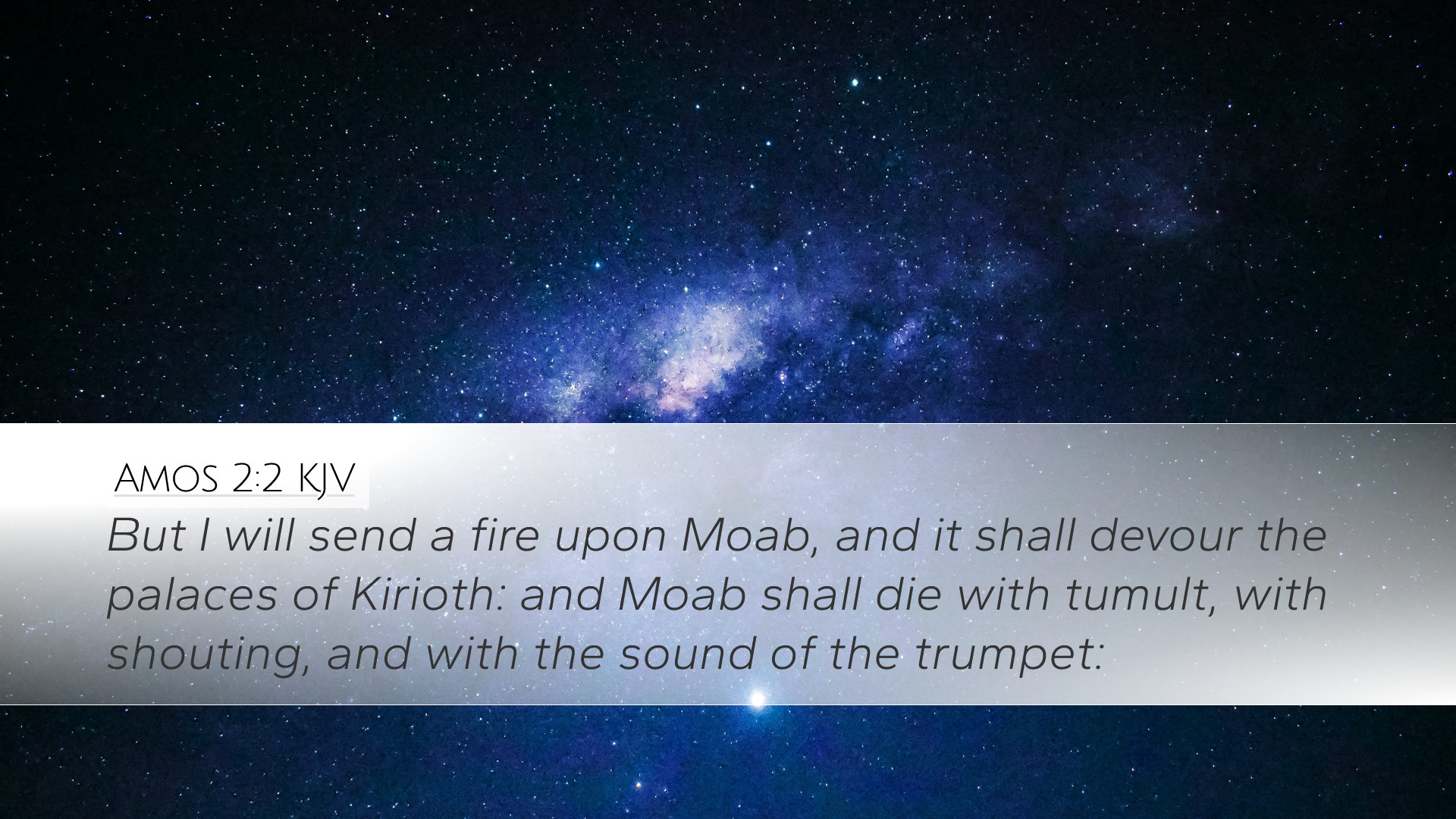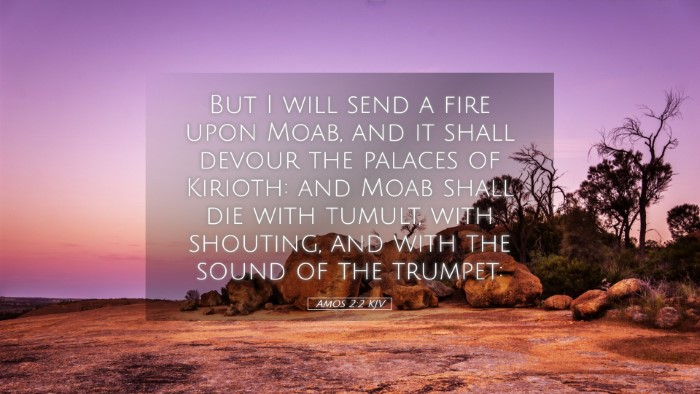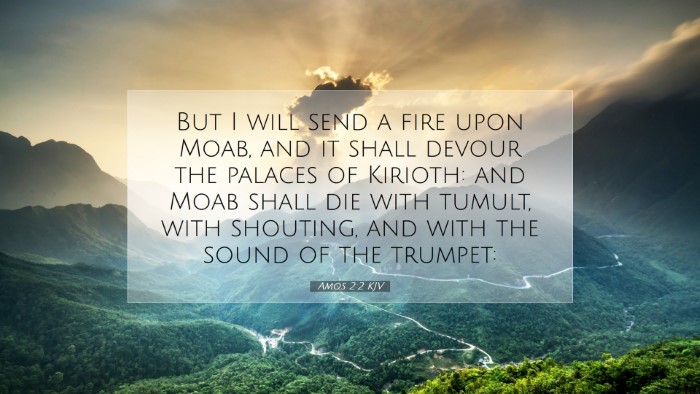Old Testament
Genesis Exodus Leviticus Numbers Deuteronomy Joshua Judges Ruth 1 Samuel 2 Samuel 1 Kings 2 Kings 1 Chronicles 2 Chronicles Ezra Nehemiah Esther Job Psalms Proverbs Ecclesiastes Song of Solomon Isaiah Jeremiah Lamentations Ezekiel Daniel Hosea Joel Amos Obadiah Jonah Micah Nahum Habakkuk Zephaniah Haggai Zechariah MalachiAmos 2:2
Amos 2:2 KJV
But I will send a fire upon Moab, and it shall devour the palaces of Kirioth: and Moab shall die with tumult, with shouting, and with the sound of the trumpet:
Amos 2:2 Bible Commentary
Commentary on Amos 2:2
Amos 2:2 reads: "But I will send a fire upon Moab, and it shall devour the palaces of Kirioth; and Moab shall die with tumult, with shouting, and with the sound of the trumpet." This verse captures a significant prophetic pronouncement against Moab, exemplifying the themes of divine judgment and the consequences of iniquity.
Contextual Overview
The Book of Amos serves as a profound critique of Israel’s social injustices and religious complacency. Amos, a shepherd from Tekoa, prophesied during a time of relative peace and prosperity in Israel, yet moral decay was rampant. The focus on surrounding nations, including Moab, emphasizes that God's judgment extends beyond Israel, revealing His sovereignty over all nations.
The Significance of Moab
Moab, situated east of the Dead Sea, had a long history of conflict with Israel. The Moabites were descendants of Lot and had often opposed the Israelites throughout biblical history. The relationship between these two nations was fraught with tension, underscoring the theme of divine retribution for sins committed.
Verse Analysis
- Fire as Divine Judgment: The metaphor of fire serves as a powerful symbol of judgment. Matthew Henry notes that fire, indicative of wrath, represents purification but also destruction. God's fire signifies not only the eradication of Moab's sins but also a warning to others.
- Kirioth's Significance: Kirioth, identified by Clarke as the principal city of Moab, symbolizes the heart of Moabite pride and power. Its mention underscores that the judgment will be thorough, addressing both the people and the strongholds of sin.
- The Sounds of Judgement: The descriptions of tumult, shouting, and trumpets indicate an overwhelming chaos. Albert Barnes highlights that these sounds reflect both calamity and the response of divine justice, illustrating that God’s judgments will not go unnoticed.
Theological Implications
This verse invites theological reflection on the nature of God's justice. As noted in various commentaries, the certainty of divine judgment serves as a reminder of the unchangeable nature of God’s moral order. The prophetic words are not merely threats; they are affirmations of God’s holiness and His commitment to righteousness.
Furthermore, it raises questions about the implications of sin not only for individuals but for entire nations. The judgment pronounced on Moab echoes throughout scripture, suggesting that nations are held accountable for their actions, and this accountability is a theme that resonates deeply in both the Old and New Testaments.
Practical Applications
For pastors and theologians, Amos 2:2 provides a crucial reminder of God's overarching sovereignty and the gravity of sin. It calls the faithful to examine their own lives and communities, fostering a spirit of humble repentance before God. As leaders, there is a call to lead congregations in being vigilant against complacency and social injustice.
Students of theology are encouraged to engage deeply with the text, understanding the historical context while gleaning timeless truths that can be applied to contemporary society. Reflecting on God's judgment can lead to discussions on grace, mercy, and the hope found in repentance.
Conclusion
Amos 2:2 stands as a stark warning and a clarion call for justice, accountability, and the recognition of God’s dominion over all nations. As we study this passage, let us be reminded of the seriousness of God’s prophecies and His desire for righteousness among His people. The fire sent upon Moab serves as a cautionary tale but also as an invitation to seek holiness and justice in our own lives and communities.


